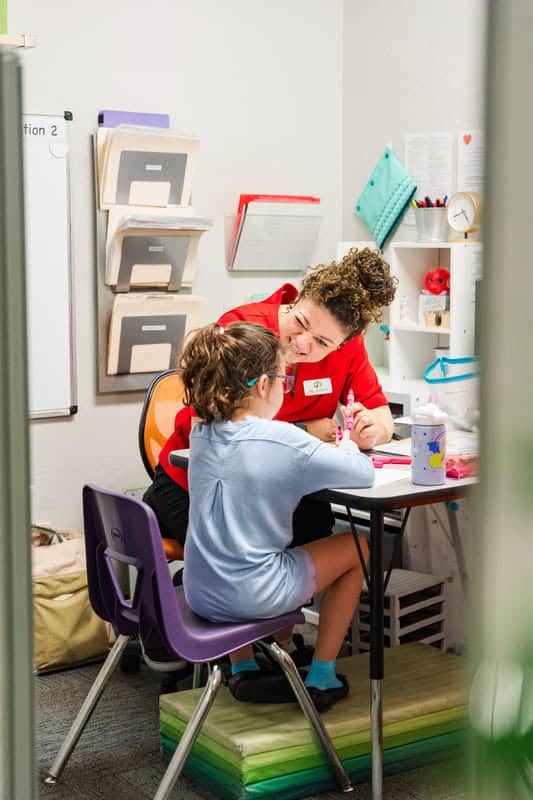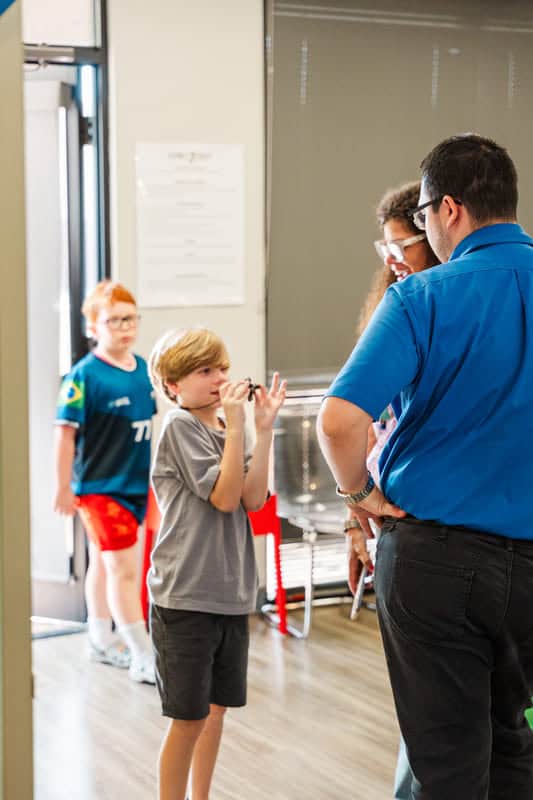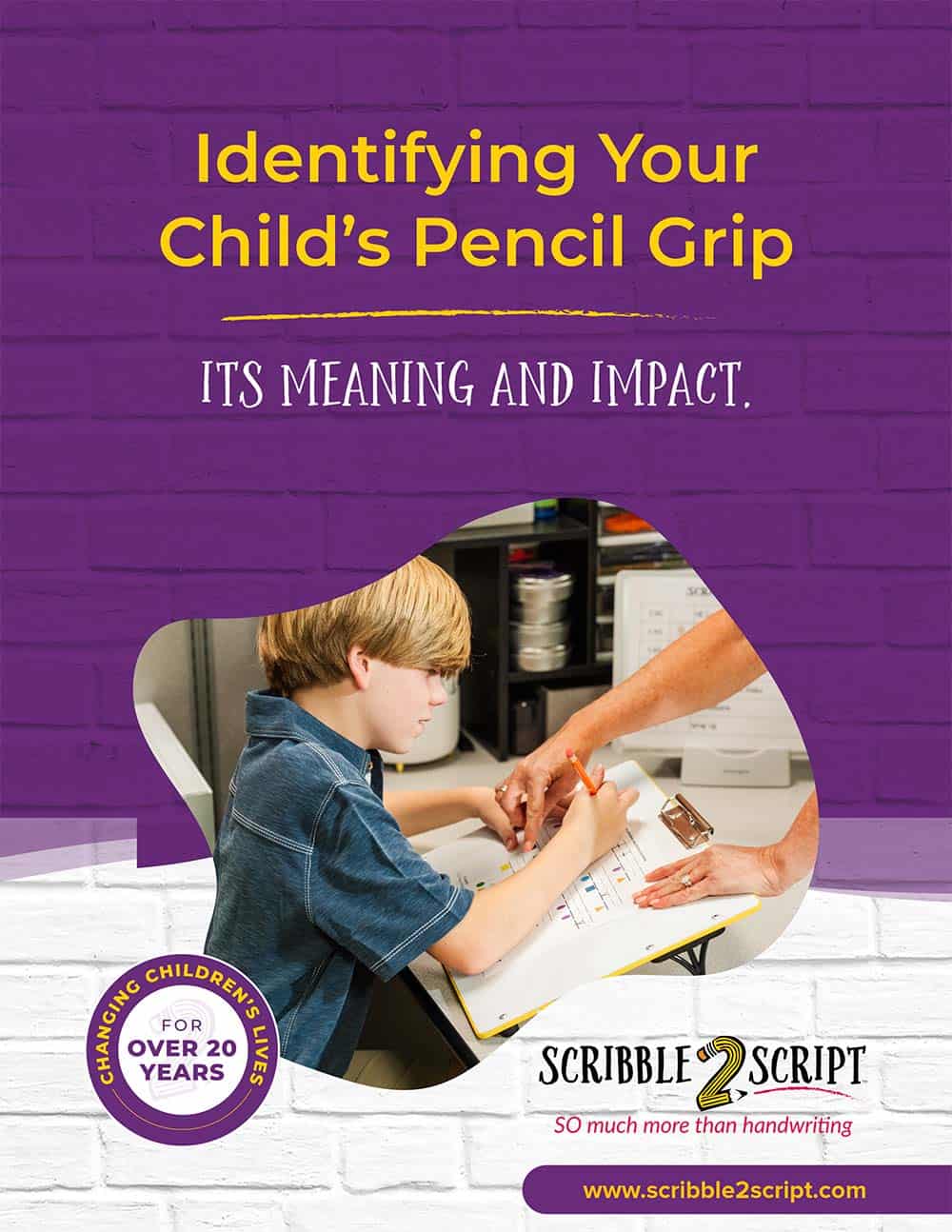You keep hearing it.
“Let’s wait and see.”
“Every child develops at their own pace.”
“They’re doing fine!”
But inside, something doesn’t feel fine.
And if you’re parenting a child ages 4-10 in preschool, kindergarten, 1st, 2nd, or 3rd grade, those years are too critical to sit on the sidelines.
If you’ve got that nagging feeling that something is “off” but you’re being told to ignore it or “just give it time,” this post is for you.
Why “Trust Your Gut” Isn’t Just a Phrase—It’s a Lifeline
You know your child better than anyone. You notice the subtle things:
- They avoid writing tasks.
- Their pencil grip looks awkward.
- They struggle to sit still at circle time.
- They’re smart, but seem to be falling behind.
And yet, when you bring it up, you’re reassured with smiles and platitudes.
Here’s the truth: educators mean well, but they’re managing full classrooms. If a child’s struggle isn’t severe, it often doesn’t get flagged.
At Scribble 2 Script, we work with these “gray area” kids every day—bright, capable children who are just stuck in ways that are easy to miss but impossible to ignore once you see them. And the earlier we intervene, the easier it is to correct.
If you’re noticing things that don’t sit right, trust your gut. You’re probably right.
The High Stakes of Early Elementary Years
From preschool through 3rd grade, your child’s brain and body are laying down the foundation for how they’ll learn—not just what they’ll learn. These years matter more than most parents realize, and the skills kids are expected to master go far beyond knowing their ABCs.
Here’s what those skills actually mean:
– Basic fine motor skills – This isn’t just about coloring inside the lines. It’s about building the muscle strength and control needed to write legibly, use utensils, button pants, and cut with scissors—all of which influence independence and academic participation.
– Letter formation and pencil control – Messy handwriting isn’t just messy. When it’s hard to get ideas onto paper, kids can start avoiding writing altogether. That affects test-taking, storytelling, and classroom confidence. And by 3rd grade, kids are expected to write to show what they know. If handwriting slows them down or makes their work unreadable, their intelligence may never make it onto the page.
– Gross motor coordination – This includes balance, posture, and core strength. Without a strong, stable core, kids fatigue quickly at their desks, have poor sitting posture, and can’t focus as long. Poor coordination also affects sports, PE participation, and even social inclusion.
– Visual tracking and directionality – These are the building blocks for reading fluency and spatial awareness. If a child loses their place while reading, skips lines, or confuses left from right, they’re going to struggle with decoding, handwriting placement, and even following classroom instructions.
– Emotional regulation and classroom stamina – Focus, frustration tolerance, and energy regulation all fall under this umbrella. Without these, kids may be labeled as disruptive, anxious, or inattentive, when in fact their nervous systems just aren’t ready for the demands of a full school day.
By 3rd grade, the academic expectations shift dramatically. Kids are no longer learning how to write—they’re writing to show what they know. Reading becomes a tool for learning, not just a subject to master. And kids who fall behind here may start to believe they’re not smart, when the real issue is that their foundation was never strong enough to begin with.
The stakes are high—but so is the potential. With the right support, your child can move from surviving to thriving.
If you’re ready to talk it through, we’re here for you. Schedule a free Discovery Call or email us at info@scribble2script.com.
When “Fine” Isn’t Good Enough
One of the hardest parts of parenting is not knowing whether you’re overreacting.
You think:
- “Is this just a phase?”
- “Am I the only one seeing this?”
- “What if I push too hard?”
We get it. But here’s what else we know:
When you can’t shake the feeling, it’s there for a reason.
We’ve worked with countless families who were told everything was “fine” only to discover foundational skills were missing. And once we addressed them? Their children:
- Caught up with peers
- Stopped resisting writing
- Became more confident and cooperative
- Reconnected with the joy of learning
How We Help Parents Like You
At Scribble 2 Script, we don’t believe in band-aid fixes. We dig deep to understand what’s really causing your child’s symptoms. Our evaluation looks at:
- Fine and gross motor skills
- Primitive reflexes and developmental foundations
- Visual-motor integration
- Core strength and endurance
- Executive functioning and classroom readiness
Because handwriting and learning challenges are rarely just about handwriting.
Sometimes, it’s a lingering reflex. Sometimes, it’s underdeveloped core strength or poor coordination. We connect the dots—so your child isn’t just “managing” but making real progress.
We specialize in the kids who fall through the cracks. The ones who don’t qualify for school-based services, but still need help. And we’ve seen firsthand: these symptoms are 100% reversible with the right approach.
You’re Standing at a Crossroads
You can wait and see.
Or you can trust your gut.
You can hope they catch up.
Or you can give them the tools to move forward with confidence.
You don’t have to solve it all today.
But you can take the first step.
Because no one regrets getting help too early. But waiting too long? That’s a different story.
Not sure what’s going on but want a clearer picture? Schedule a comprehensive evaluation or give us a call at 480-614-1232 .






